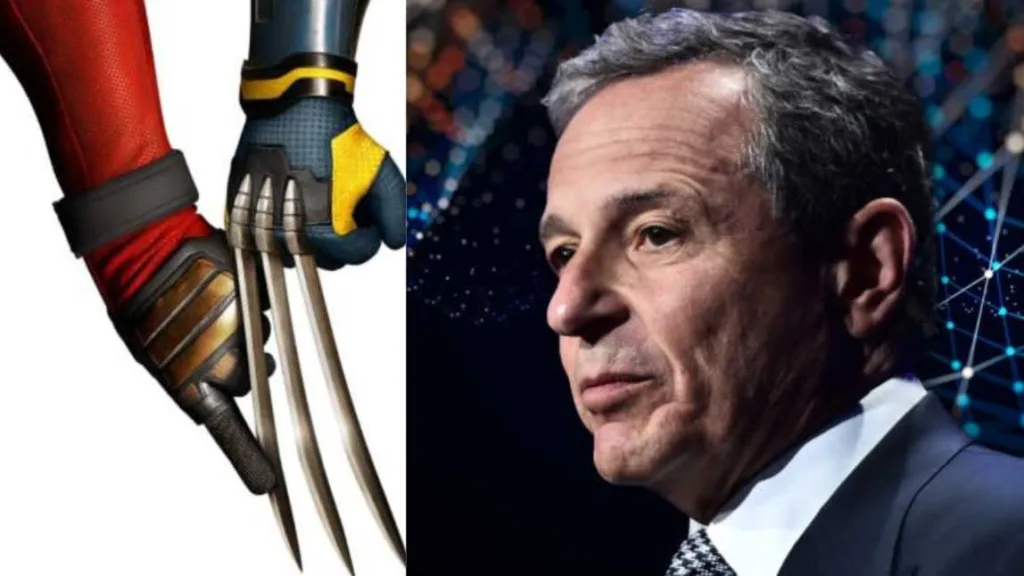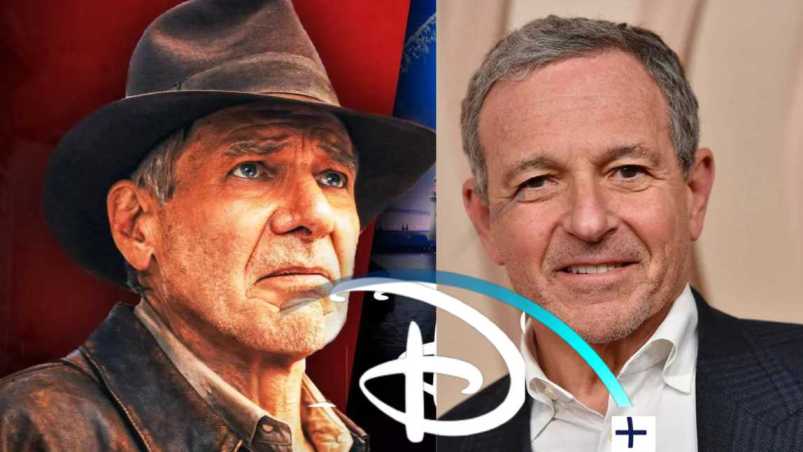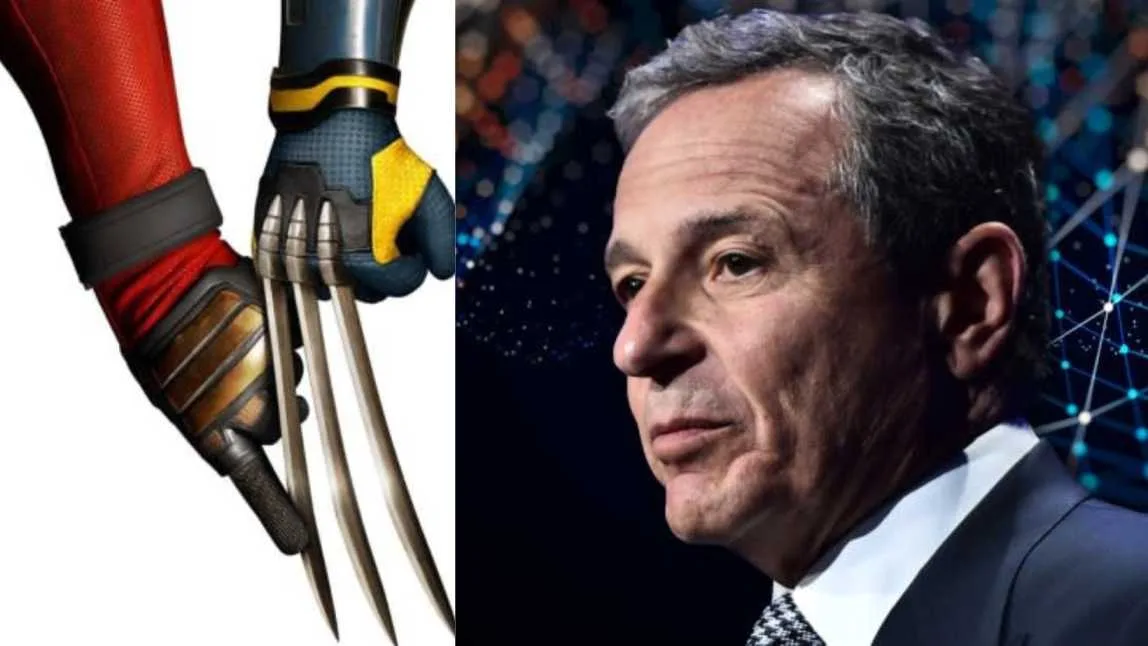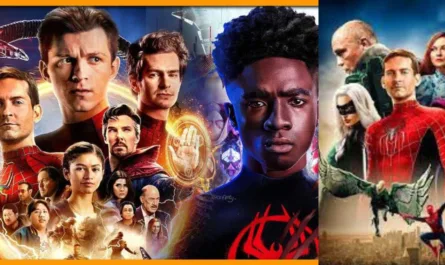
Disney CEO Bob Iger announced a recent change in strategy regarding the creation of Marvel films and programming forDisney+ that caused a stir in the entertainment business. The disclosure denotes a substantial shift in the organization’s strategy for producing content, one that takes into account audience preferences and changing market conditions.
Bob Iger announced Disney’s intentions to reduce the number of Marvel films and other material produced for its streaming service, Disney+, during a news conference. This choice is being made in an environment that is being affected by the continued impacts of the worldwide pandemic, as well as an expansion of streaming services and changes in the theatre sector.
A key component of Disney’s cinematic universe, the Marvel movie series has had its production cut, raising concerns about how one of the most successful in movie history will fare in the future. Marvel Studios, which features a string of interrelated films that have made billions of dollars at the box office globally, has been a major source of income for Disney for more than ten years. Bob Iger’s decision, nevertheless, points to a reevaluation of the entertainment conglomerate’s goals.
Marvel Movies & Disney+ Productions in the Future

Disney+’s emphasis also reflects the company’s dedication to using its streaming platform as the main means of distributing content. Disney understands how critical it is to provide engaging, original content to draw in new members and keep existing ones amidst the growing streaming wars and competition from companies like Netflix, Amazon Prime, and up-and-coming competitors.
The change in approach also highlights how consumer behavior has evolved more generally, with more and more people choosing streaming services over live theatre visits. Disney hopes to leverage this trend and maintain its position as the industry leader in streaming by reinvesting money in Disney+.
The choice to cut back on Marvel film production does not, however, mean that the property will no longer be seen in motion pictures. Bob Iger told fans that although the number of releases may decrease, the caliber and aspirations of upcoming Marvel projects would always come first. The innovative storyline and state-of-the-art visual effects promise to make Marvel’s cinematic legacy last for many years to come.
Disney is also dedicated to encouraging imagination and originality at Marvel Studios, giving directors the freedom to push limits and discover uncharted storytelling ground. Even with a smaller number, the upcoming Marvel projects are expected to provide spectators with unmatched entertainment experiences that push the boundaries of the superhero genre.
Disney CEO Bob Iger Reveals Change in MCU Publications
Bob Iger announced intentions to rearrange the release schedule for future MCU films at a press conference, which is a change from the past practice of having many movies per year. Disney’s will to adjust to shifting consumer tastes and market conditions while maintaining the Marvel brand’s endurance and profitability is evident in this tactical turn.
Bob Iger argues that the choice to scale back Marvel production is a calculated move to maintain quality and durability rather than a sign of a lack of confidence in the franchise’s ongoing popularity. The change is a result of a deliberate attempt to put storytelling depth above quantity by concentrating on a smaller number of expertly constructed stories that have a stronger emotional impact on viewers.
The choice to rethink the MCU film release schedule was made at a critical juncture in the entertainment sector, as changes in consumer behavior and technology are driving a swift transformation of the landscape. Disney understands that it needs to be adaptable and creative in its approach to content distribution as streaming services gain popularity and the theatre experience changes in reaction to world events.
Bob Iger’s statement suggests a more methodical and selective approach to the creation and distribution of MCU films, emphasizing excellence above quantity. The goal of Marvel Studios is to provide a more powerful and immersive storytelling experience for fans throughout the globe by distributing releases widely apart and allowing sufficient time to elapse between each episode.
Marvel’s dedication to pushing artistic limits and delving into uncharted narrative territory within the superhero genre is also reflected in this change in strategy. Disney aims to uphold the superior quality that has come to be associated with the MCU brand by providing filmmakers with the necessary time and resources to create captivating and inventive films.
Moreover, Marvel Studios now has a chance to reimagine its cinematic world and explore fresh storytelling directions thanks to the reorganization of the release schedule. The options for upcoming MCU films are almost endless, promising original and captivating storylines that will attract viewers of all ages, thanks to the vast roster of characters and plot arcs available.
Fans who are excited to see what the future holds for their favorite Marvel superheroes have been speculating and anticipating Bob Iger’s announcement, even if particular release dates and new projects are still unknown. The next chapter of the Marvel Cinematic Universe is expected to be just as exciting and innovative as ever, with much anticipated sequels and maybe even brand-new franchises.
To sum up, Disney’s announcement of the change in the MCU release schedule is a daring and astute decision that highlights the business’s dedication to creativity and superior narrative. Marvel Studios is positioned to attract consumers and mold the superhero genre for years to come by adopting a more adaptable and selective strategy for content distribution.
Could This Affect MCU Phases 5 and 6 Further?
Fans all around the world are curious and speculating after Disney recently revealed that the release schedule for Marvel Cinematic Universe (MCU) films would be strategically shifted. The rescheduling of superhero blockbusters by the entertainment giant has significant ramifications for Phases 5 and 6 of the MCU, indicating a dynamic development of the popular series.
The reorganization of the release schedule suggests a more methodical and selective approach to the creation and distribution of upcoming MCU films, with the announcement of Phase 4 already underway and a wide range of projects scheduled to debut on Disney+ and in theatres in the upcoming years. Disney’s will to adjust to shifting consumer tastes and market conditions while maintaining the Marvel brand’s endurance and profitability is evident in this tactical turn.
This change in approach might result in a more seamless and integrated Phases 5 and 6 narrative experience, which is one of its most prominent effects. Marvel Studios can create a more complex and engrossing narrative tapestry that spans numerous films and Disney+ series by separating releases and giving enough time between each chapter. This strategy gives directors the creative latitude to go deeper into new character arcs and stories while also improving the MCU’s overall coherence.
In Phases 5 and 6 of the MCU, new franchises and characters might also be introduced thanks to the reorganization of the release schedule. Marvel Studios can afford to take chances and explore unknown ground when there is more time between releases. This allows them to introduce fans to intriguing new characters, villains, and stories that push the boundaries of the superhero genre.
Furthermore, by switching up its release schedule, Marvel Studios will have the chance to put more emphasis on quality than quantity and make sure that every MCU movie has the time and funding necessary to realize its full potential. This strategy demonstrates Disney’s dedication to upholding the high bar of quality that has come to be associated with the Marvel brand while also gratifying fans’ voracious appetites for epic tales and legendary heroes.
Even though the specifics of the Phase 5 and 6 projects are yet unknown, fans who are curious about what the MCU will look like in the future are excited by Disney’s news. The upcoming chapters of the Marvel epic promise to be as fascinating and innovative as ever, laying the groundwork for an exciting new era of superhero storytelling, including much-anticipated sequels and perhaps new franchises.
Phases 5 and 6 of the MCU will surely be significantly impacted by Disney’s change in release strategy, which will also mark the beginning of a new chapter of inventive narrative for the cherished property. Marvel Studios is positioned to attract consumers and mold the superhero genre for years to come by adopting a more adaptable and selective strategy for content distribution.
To sum up, Disney’s choice to scale back the release of Marvel films and Disney+ is a strategic realignment meant to maintain long-term success in a constantly changing market context. The organization has a forward-thinking approach to content development that positioned it for continuing growth and relevance in the years ahead by embracing the streaming revolution and placing quality before quantity. One thing is clear: under Disney’s inspiring direction, the beauty of storytelling will endure, even as fans excitedly await the next installment in the Marvel tale.
Does Disney still control Marvel?
It is a part of Disney Entertainment, a branch of Walt Disney Studios, which is owned by the Walt Disney Company. Based on characters that appear in Marvel Comics publications, Marvel Studios creates the Marvel Cinematic Universe (MCU) television shows and motion pictures.
Who is Disney’s largest shareholder?
The majority of Walt Disney (DIS) shares are owned by Vanguard. The ownership structure can affect the way a company makes decisions since big institutional investors can influence management and have an impact on the stock price of the firm through their purchasing and selling habits.
Who serves as Marvel’s CEO?
As a result of superhero weariness, Disney is cutting the number of Marvel Studios films released each year from around four to two, “or a maximum of three,” CEO Bob Iger announced on Tuesday.
Is Disney the sole owner of Marvel?
Disney received valuable intellectual property from the acquisition, which it used to create dozens of blockbuster Marvel Comics Universe films. Disney acquired the comic book company for $4 billion.
Who gave Disney the Marvel license?
For $4 billion, Mr. Perlmutter sold Marvel to Disney in 2009. After taking over the superhero firm in the late 1990s, he licensed characters like Spider-Man and X-Men to film studios, which led to a significant expansion of its merchandise business.


